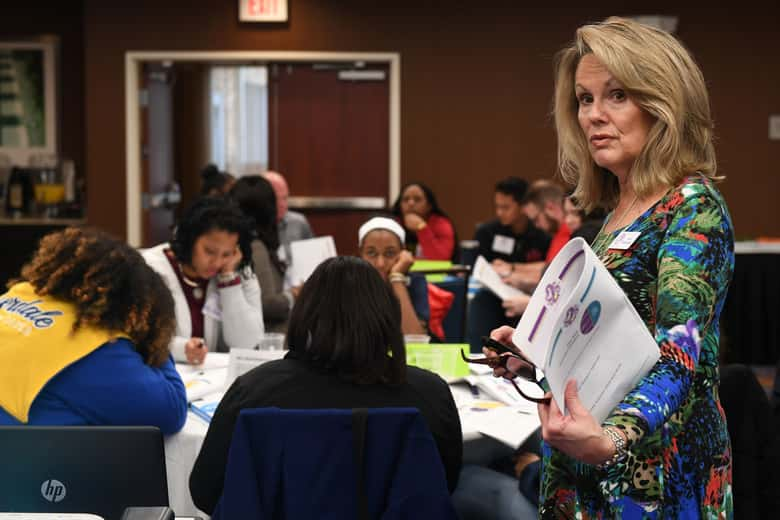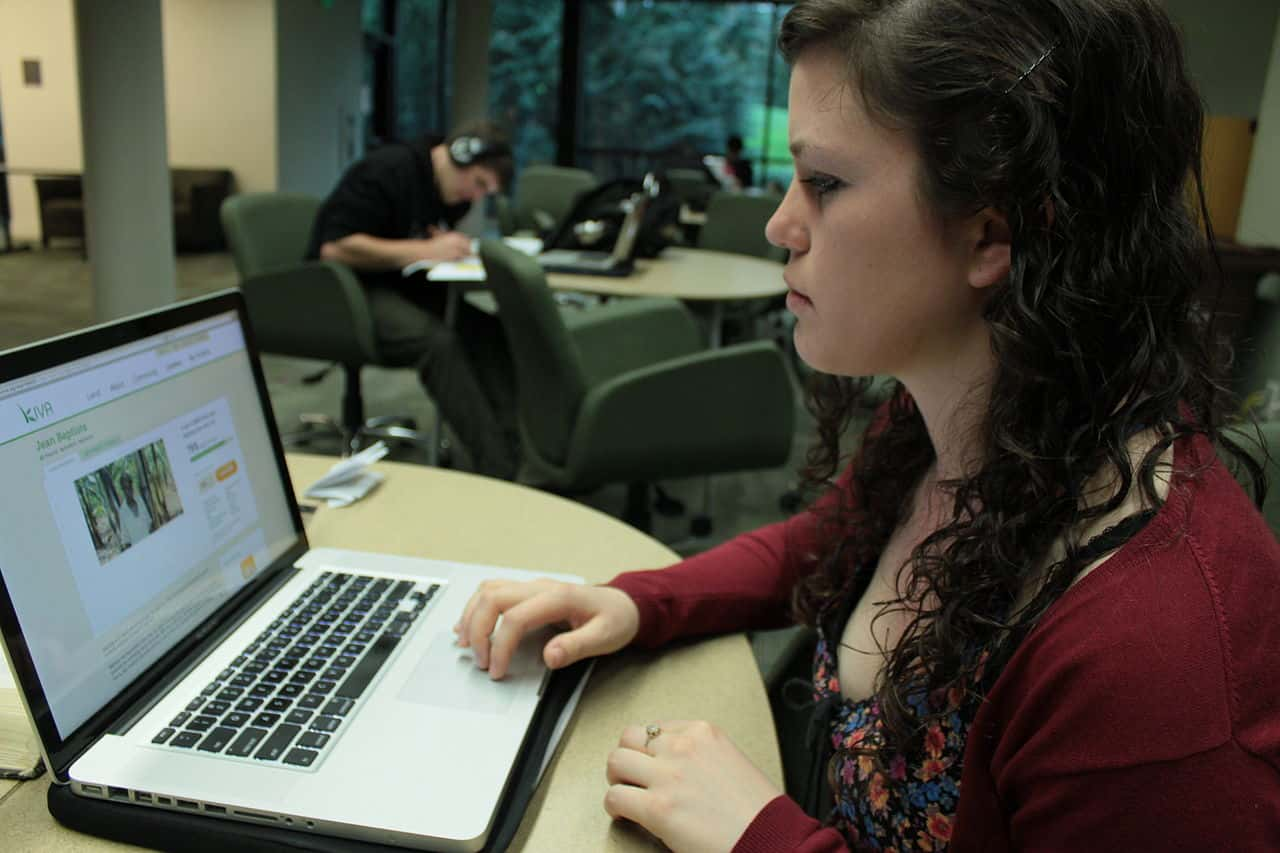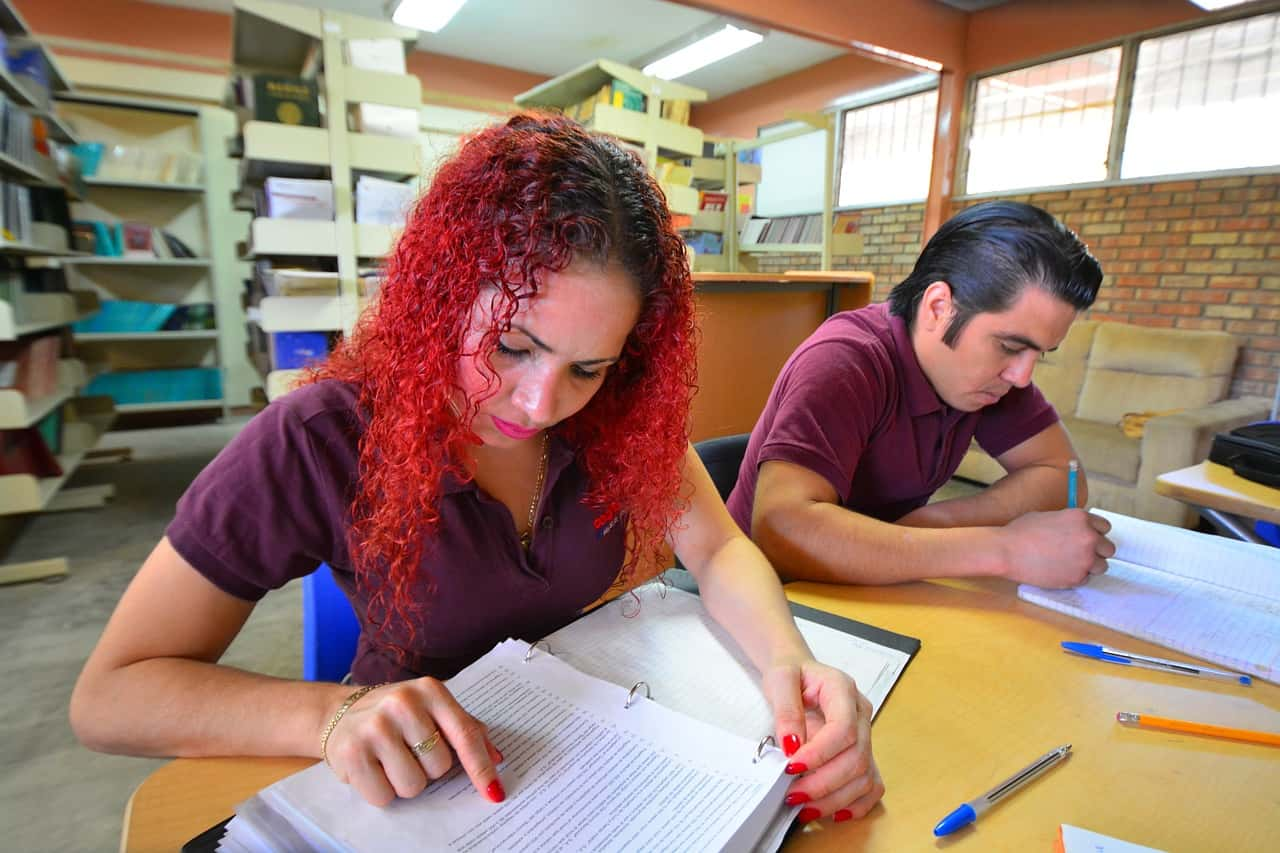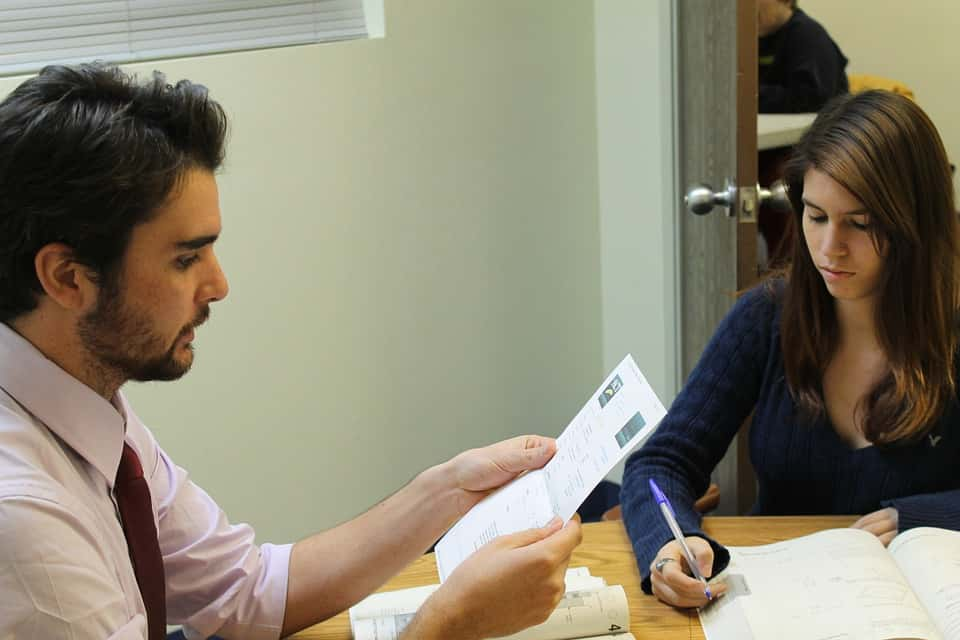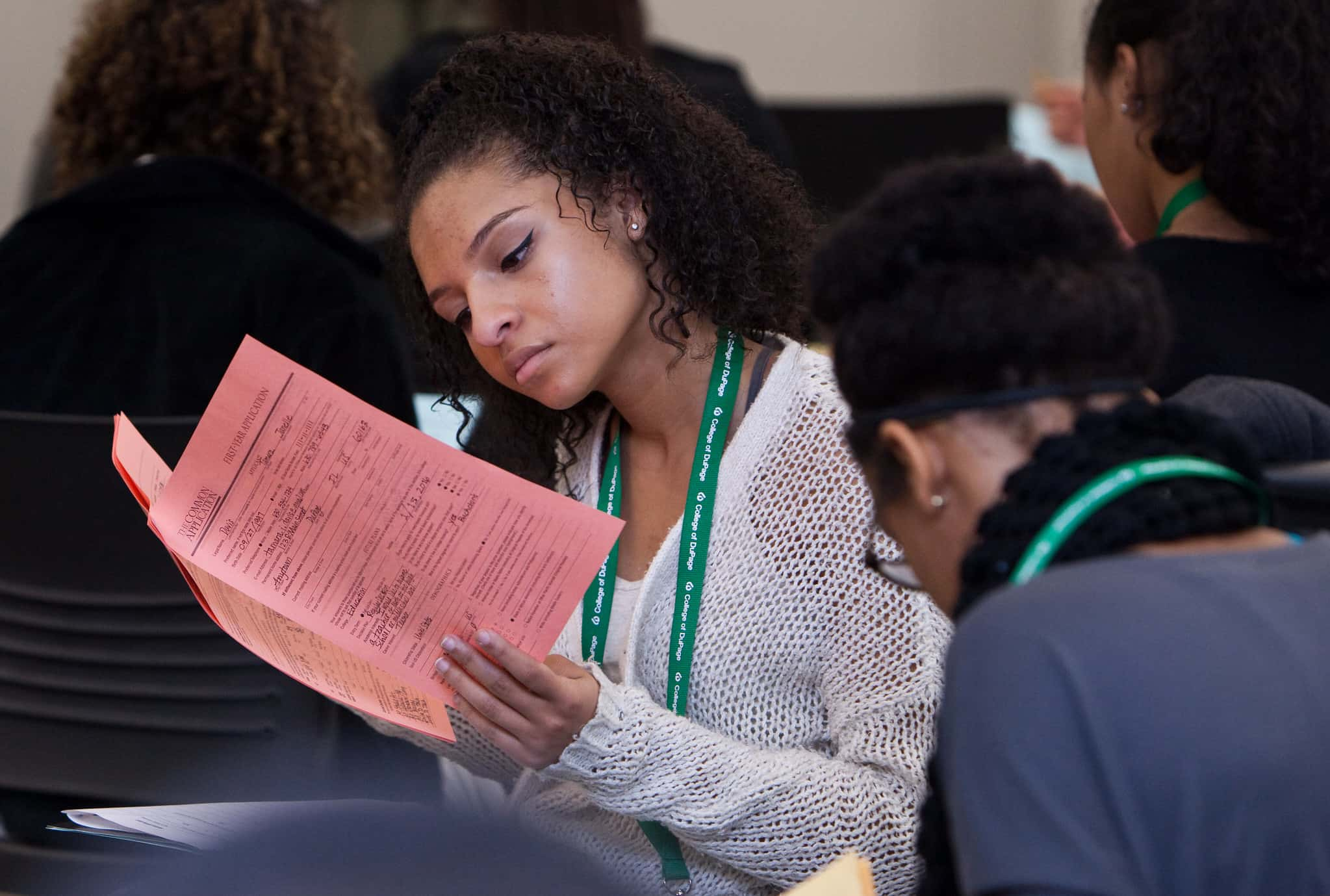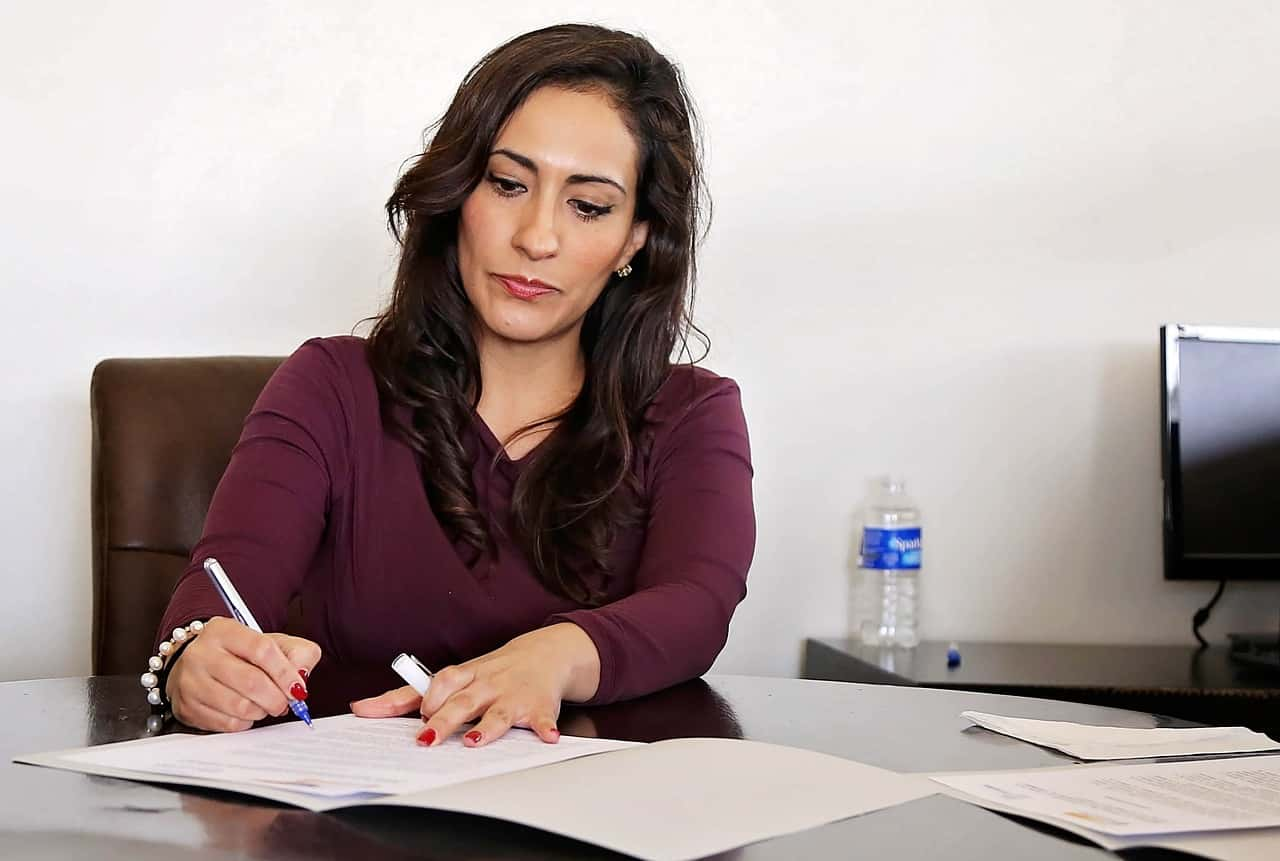You only get a few minutes to make a good impression. So how do you ensure that your university application not only ticks off all of the boxes, but stands out to the person who will ultimately decide your post-secondary school fate? What do the admissions team actually need to know? How are applications read? How are decisions made? Why does one student get in when another doesn't? The people who check university applications have finally let us in on the secrets below.
Don't forget to check the comment section below the article for more interesting stories!
#1 Extracurriculars
I read and evaluated applications for the University of Chicago and now, for the last six years, have helped 300 students apply to college as an admissions consultant using the insight I gained within a top-five admissions office. I see so many students leave off extracurricular activities because they worry they're not prestigious enough. They leave off hobbies as they didn't realize the 10 hours a week they spent on independent art projects could count as an extracurricular. They don't mention their family obligations, such as having to take care of their four younger siblings for many hours each day as their single mom works two jobs.
#2 Check It Over
If a topic essay is required, my only instruction is that you follow the directions to the letter and have multiple, QUALIFIED, people look it over.
#3 Be Creative
Never write about the school you're applying to. Write about yourself. Who are you, what do you have to offer, what motivates you, who will you be one day? There's a story that the folks down at Rice tell when they're doing tours. Their application has a little box in the middle of a page, with the instructions to fill the box with something unique that expresses why they should accept you.
Back in the 80s, some kid filled the box with glue and then dumped uncooked rice on it, so that there was just a rectangle of dry rice in the middle of the application. They tell everyone this so that they know it has been done, and will result in your application being rejected immediately. Seriously. The admissions people see a dozen applications a day that talk about how good the school is, or its history, or its alumni, etc. They've seen all of it before, and none of that means a damn thing when it comes to what you will bring to the school.
#4 Read It Again and Again
A surprisingly large number of essays include obvious typos and grammar issues. Use spell check, read your essay aloud, and have a few other people read it to check for errors. I want to know that you're taking this application seriously.
#5 Personalize Everything
Don't be afraid to personalize your application. If you let the admissions team know that you were working two jobs after school to help your family pay rent, that really says a lot about you. We can read between the lines and see that's why your application may not be stellar in other areas.
#6 What Makes You Different?
Give me a sense of who you are. What makes you different than your peers? What would make you an interesting member of my college's community? I want to see some personality. It's not strictly necessary, but it helps me understand you and why you're a good candidate compared the other couple of dozen applicants I'm reviewing today.
#7 Location Matters
The strongest bit of advice for students applying to a European (particularly UK) University course: don't send a U.S.-style personal statement. Applications in the U.S. tend to be handled by admin staff whereas in the UK/EU by academic staff. These academic staff do not want to read several pages on your non-academic interests and skills, it's a waste of their time. Focus entirely on your subject-based interest and experience. It's often not even worth saying why you want to attend that particular Uni on a UK application unless it's due to the strength of the department or the teaching staff on the course you are actually taking.
#8 Take Ownership
If there are problematic areas in your application (for example, some bad grades or weak extracurricular activities), give me some context. I want to understand why you're still a good candidate. I really want to admit you. As a college, we need the tuition and financial aid money you can provide, and we can't get that unless you're admitted and enroll.
So explain those bad grades or other problems that might make me think you would struggle in college. Be careful not to shrug off responsibility for your own actions, though. Ideally, I want to see you take ownership of your struggles and that you've learned from them, with evidence that you've improved.
#9 Grammar
UK university admin here. Spellcheck and check your grammar. People often forget to answer the most important question: What do you want to study, and why? You'd be surprised how many personal statements I read that are full of fantastic achievements, but none of that matters if I can't tell what you're applying for!
#10 Do More
Show your effort in any way you can. This doesn't mean to try those gimmicks or to pester the school with unsolicited materials, but do take advantage of every single opportunity and option they offer. Don't just do the standard or minimum amount of effort if you can do more.
#11 Take it Seriously
Many students don't take scholarships seriously. I was definitely one of those when I was applying for school. UGH, 5 essays? Well, I guess they get one about how much I hate writing essays... Those kids are immediately disqualified. People who need the money will take it seriously, and if you need the money and didn't take it seriously, well, you're an idiot and I probably don't want you coming to my school anyway.
#12 Be Human
Be a human. Seriously... it sounds simple but folks that get too canned with their answers and don't open up about what makes them a person usually don't do as well.
#13 Application Forms
Application form: This is usually very basic, but people make very stupid mistakes with it that can have serious implications down the road. Do not use an email address that you use with friends. Thinking that MLPlover69@whatever will not be noticed or recognized as a My Little Pony enthusiast is naive. If necessary, create a very PC new one for your application. Unique ones can be a bonus though, I recall one that used the pre-chosen letters for the last round of Wheel of Fortune as being recognized favourably by faculty for example. Ensure that all answers are correct. Many times people ticked the box for "Are you using active-duty military tuition assistance to fund your education?" when they were actually using their GI Bill. This makes a big difference as you would be handled by separate departments. While these things will not determine the outcome of your application, they speak a lot to your ability to follow directions.
#14 Do Everything Asked of You
The people who do stand out are the ones who did everything that was asked of them: submitted all documents on time, met and completed all requirements, didn't come in when we said not to, didn't make a fuss, were passionate, enthusiastic, and had a positive interaction to everyone they interact with.
#15 Check Over Resumes
A standard resume is fine, but make sure to have someone check it over first. I have seen so many unique mistakes on these, from a handwritten one that appeared to be in crayon to someone who misspelled "bachelor degree" with a 4.0 GPA, to ones missing dates of employment, contact information, and those that didn't change their objective from the last time they were looking for "any job I can get, honestly I'm desperate." Again, the resume is not usually make or break, but attention to detail is important. One faculty member I worked closely with had a pet peeve about people who did not include their address on it and assumed they were homeless.
#16 What's Relevant?
Think about what makes you unique. Admissions tutors read hundreds of applications. I used to ask my group to put their hands up if they were a prefect in school, and usually at least two-thirds of the group would put their hands up. It won't make you stand out. I did the same with part-time jobs and/or work experience. Again, loads put their hands up. Then I asked them to keep their hands up if their job or work experience was actually relevant to their chosen course. Only a few were ever left with their hands up.
#17 Proofread
I used to work for a college women's hockey team. Part of my job was sorting the letters to the head coach from prospective players. If it was obvious it was a form letter, especially stuff like mentioning the wrong school or coach, you automatically went to the bottom of the pile.
#18 Test-Optional
I'm from a state (hint, it's Delaware) where there is a heavy emphasis on "test-optional" submissions, especially for in-state students, and lots of people think that they will just ignore the test scores and judge you without them. While this is true, this puts you at a HEAVY disadvantage with the admissions team. They look at test-optionals last, so if they've already gotten close to their admissions quota, they will be much more scrupulous, and it'll be harder to get in. Their logic is that if you don't submit your test scores, you either don't test well, or "aren't smart enough" for the university, which is unfortunate.
#19 Good Recommendation Letters
They get generic letters of recommendation, or they pick a teacher that doesn't add a lot of value to their application. Most top universities want two letters of recommendation from teachers: one from a STEM teacher and one from humanities. Ideally, these teachers are from a student's junior year or had the student for multiple classes and years at school. Further, many teachers use a template to write their letters of recommendation so most letters of rec are very generic.
They include stuff like "she was a good class contributor" or "he will excel in college" without any concrete details as to why—as most teachers are not paid to write letters of rec, must write a lot of them, and take shortcuts to churn out letters in time for the deadline. To get good letters of recommendation, it is key that your teacher personalizes the letter. Ideally, they'll also compare you to your peers. For example, "He is the single most driven student I have met in my 10 year career, and he is absolutely determined to accomplish his dreams of XYZ" or "She is the brightest math student I teach across all my 7 classes this year," etc. How to get those sort of letters of rec? Send them a letter with detailed examples and anecdotes from your time in class!
#20 Transcripts
I used to work in the admissions office for an art school. We really only required transcripts and your portfolio (or audition for performing arts). Essays, test scores, and even letters of recommendation were optional and really didn't matter as much.
#21 Why Are You Special?
Most of the time people only talk about the right now stuff in their life. "Describe how you overcame adversity" prompts a kid to write about how in English class he had to read three books in two weeks. This is a bad essay about you being a bad student. Later in his application, I see the kid's photo and lo and behold, the kid is a double-amputee. WRITE ABOUT THAT YOU IDIOT. The more "finished" an adverse situation is in your mind, the more you no longer dwell on it, the better that is an example of how you OVERCAME the adversity. That kid... he just chose the most mundane and boring essay topics across the board, and he absolutely could have won the scholarship if he'd just written about his actual life.
#22 Be Specific
People prepare their entire application, including essays, without giving even the slightest indication of why they are applying to the college or graduate school or what they hope to gain from the experience.
#23 Make it Official
Some schools will only require the transcript from the school you graduated from, others (usually more prestigious schools), will want all of them. Any transfer credits, military credits, post-graduate work, certificates, community colleges, you name it. Be ready for this as some people do balk at it if they have attended multiple institutions. They usually need to be official, which means they must come directly from the school you attended to ours.
#24 Know the Deadlines
I have worked in admissions for six years. Honestly, it's pure ignorance that hurts students the most at most universities. Typos, spelling errors, and grammatical errors jump out the most, but I have seen many students reuse essays for multiple schools and forget to replace important info. Know the deadlines, know the criteria, know what we need and make sure you meet those. If you are applying to a school where you are around or over the mean, you're fine.
#25 Don't Resume Fill
Don't just be a resume filler. One year in the environmental club, one year in the history club, one year in the robotics club, etc. shows your just trying to con your way in. Find something you really enjoy and stay devoted to it. Show you're willing to put in work for something you care about, not just go through the emotions.
#26 Be Serious but Fun
Put yourself in the place of the admissions reader. Just imagine how many apps you have to read. Imagine how boring they are. Imagine how many sound like clones. Imagine how many times you have to see the same adjectives. Imagine how happy you are when an original one comes along! In other words, personalize your app. Make it serious, but fun. Show how distinct and creative you are.
#27 Don't Be Generic
Their essays are generic because they fail to include how they think, feel, or view the world differently as a result of their experiences. I cannot tell you how many students' essays I've read that talk about football or piano or their research position and just gives an A to Z guide of their participation in the activity. Do you know how many other students have done the same activities? These essays all blend together and tell us little about YOU other than what we could have already gleaned from your activities list.
#28 Don't Mess Around
I used to work in the admissions department of a university in Florida. One thing I learned about the admissions process there is that although you're required to submit an essay, it won't even get read unless they can't make up their mind on grades alone. So the best tip I can give is to just not mess around in high school.
#29 Work Experience
Lots of people put in all their wonderful extracurriculars but often neglect to mention work experience. This might just be a personal preference of mine, but I think it shows that you are a well-rounded individual who can work hard, take responsibility, and who is a little more mature. I think it's important as these are valuable attributes to have when attending university and being away from home for the first time. We are looking for well-rounded students after all, which doesn't just mean being able to play the trumpet and tapdance.
#30 Don't Do This
I once attended an open day at Exeter University in the UK where they held a session on how to apply for university and what to put in your personal statement. The man running the session told us of a story where a girl had written a recipe on "how to make the perfect student" which then continued on to say things such as "add 50 grams of passion for the topic and mix well." Apparently she was rejected almost immediately.
#31 Pay Attention to Recommendations
In my experience, letters of recommendation hold less weight than people assume. With that said, this is an area where I have seen some of the biggest mistakes. I have seen letters saying not to accept someone because they were about to be fired, those from little brothers(again written in crayon), and those from employees of the applicant. It is assumed that anyone can get people to write nice things about them, but those with the most impact are, in order, academic references, supervisors, or those in the public eye. In other words, those that actually are staking their reputation on you, in a way.
#32 Seek Help
As a teacher and adviser, and often one asked to help write letters on behalf of students, what can I do to help? I write about a dozen letters a year for kids I advise and are close with. How can I increase the chances of these kids?
#33 Grades are Important
I'm head of admissions for an optometry school. Here is something you may not want to hear but it's the truth: your grades and test scores are going to be most important to most schools. There is a lot of talk on here about setting yourself apart. The first way you do that is by showing you can actually do the work. No competitive admissions department is going to accept you, no matter how many lunches you served to the homeless, if they don't believe you can do the work. It's not something you can show in the two weeks you are working on your application if you haven't worked on it for the four years prior.
#34 Be Nice
I assist with admissions for a graduate program at a large university (40,000+ student population). Our program sees over 400 applications per year: first an online application and then we do in-person interviews. You're probably doing most things right when applying, spell checking your submissions, make sure your references are strong, meet all the requirements, etc.
Things you DON'T want to do: make yourself stand out in a negative way. Any applicant who doesn't submit docs on time, whose interactions with staff are rude, negative, or pushy. We note and keep track of all of that and you will not be getting an interview, despite what your GPA may be.
#35 Don't Copy and Paste
You'd be surprised how often people use a copy and pasted response to questions, or even their entire admission letter. You can have the best application ever seen, but your chances drop instantly if your admission letter for University X still says "for these reasons and so many more, I believe University Y is the perfect fit for me." Ok, so go to University Y. Application rejected.
#36 Don't Exaggerate
Let someone read your essays for cringe. Please don't write an essay about how a two-day volunteer trip changed your life unless you actually started volunteering everywhere else and created an NGO for that cause after. I'd rather hear more about your life and activities and hobbies as a whole. Please, if you're going to exaggerate, don't make it something which is basically a lie.
#37 Part-Time Jobs
Part-time jobs. In this day and age, a lot of kids go to college never having held a job. If you did have a part-time job and can get a letter of recommendation from your boss (responsible, hard-working, gets along well with others, reliable, honest), it goes a LONG way.
#38 Your GPA Matters
I worked in an admissions office for eight years and the institution I worked at just cared if you had the correct high school credits, GPA, test scores, and no criminal record. If you met that, you were admitted. And many times even if you did not, you'd still get in. Funding was based on numbers so they didn't care about you or your ambitions.
#39 Research Extensively
Many universities (UChicago, Penn, Michigan, Columbia, Brown, Yale, Stanford, Cornell, Carnegie Mellon, etc.) ask, "Why our college?" or a combo between "Why our college?" and "Why your major?" BE SPECIFIC. I cannot tell you how many essays I read for UChicago that were like "When I visited your campus, it felt magical. I was surrounded by students who were so driven yet friendly. As I explored your biology major, I found great classes like organic chemistry and intro to biology, and I just knew that such a prestigious university would prepare me for medical school." BLAH BLAH BLAH—all this could apply to any school! Be extremely, extremely specific. Research the school extensively.
#40 Dating Profile
The bottom line is make sure your application lines up with the school. Don't think so much that this is a job you are applying to as much as a dating profile. We want to see you, your personality, what your future earning potential might be, how committed to us and yourself you are, and most importantly if you are a good fit.
#41 Character
The number one thing that kids like to just wimp out on is recommendations. For example: Kid one has a 2.6 GPA, 21 ACT, has a great recommendation from a teacher who explains their struggles or their constant growth, anything flattering that isn't too over the top.
Kid two has a 2.9 GPA, 23 ACT, has a generic recommendation sheet from a counselor, which is usually just a blank sheet with some basic info, and only a simple recommendation signature from a counselor. You would not believe how many times the school would pick kid one. Character is looked at a lot by universities.
#42 Recommendations are Crucial
I can answer this since I work in American higher education! For graduate school, recommendations are absolutely crucial, so be very careful with who you pick. It’s normally the first thing universities look at. I recommend someone who will write passionately but honestly about you. It can sometimes be helpful to send your writer your resume and essay submissions as well (and if they’re willing to look at and incorporate those documents, they’re probably a good writer for you).
Also, self-advocacy is key for your essay submissions, so don’t be afraid of coming off as bragging. A lot of students try to be humble (or even vague), which hurts their application since admissions doesn’t have time to interpret their essay.
#43 Submit Online
Submit your application online. I work in admissions and getting paper applications is not only annoying but it slows down the whole process. For one, the amount of spelling errors is alarming and we end up having to call people to see how to spell their first name. Secondly, as much as it sucks, sometimes, paper applications get lost. Things just move a lot quicker online.
#44 Avoid Humor—Sometimes
I've worked in admissions to an undergrad honors program. Humor is fine, but morbid humor is generally hit or miss. I'm scanning your recommendations for actual examples of your awesomeness, as everything is generally going to be boilerplate "best ever!" so if your recommendations have a particular example, such as, "He wrote an essay that made me cry," or "He was the fastest at (whatever)" it's helpful. Remind your recommenders of these moments before.
#45 Research Your Career
I work in the admissions office. Improper emails, misspellings, terrible handwriting all make us critical of whatever you’re going to say next. The thing that agitated me the most, however, is your level of research on your career. “Elementary school math teacher” is not what you put in the blank for your major. “Education” is a major. It’s astounding how many potential students don’t do research before applying. Last week, we had an applicant that wanted to go to the NFL... we don’t have a football team.













